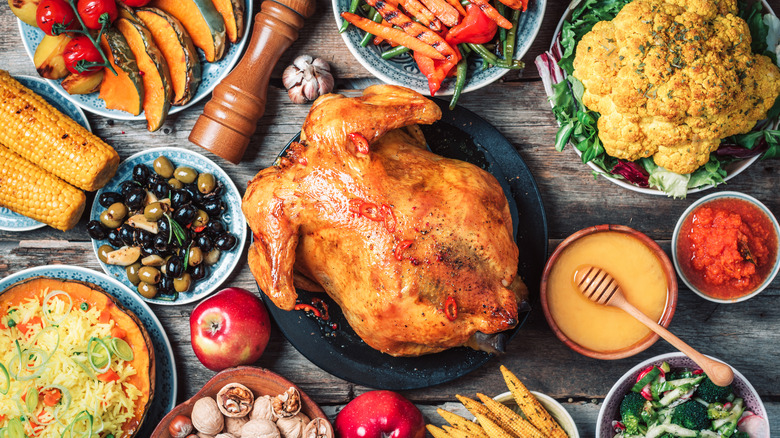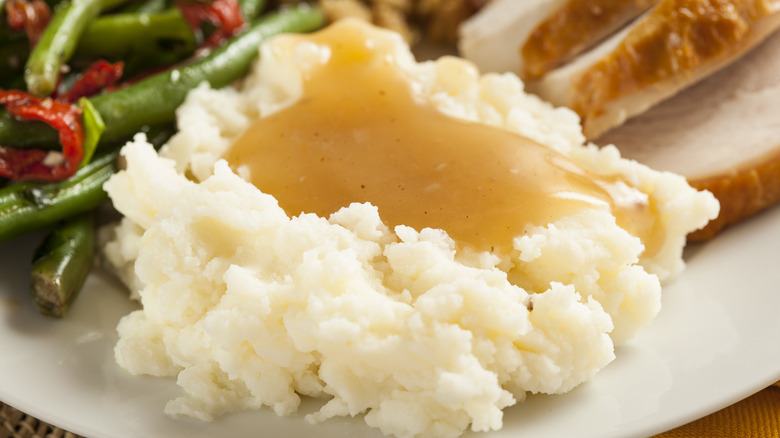Why You Shouldn't Fast Before Thanksgiving
For as much as Thanksgiving is about gathering with friends and family, it's also about the food. Between the roast turkey, stuffing, fluffy mashed potatoes, buttered rolls, green bean casserole, and creamy pumpkin pie, calling it all a feast would be an understatement for many of our holiday meals on Turkey Day. According to a 2018 piece by Consumer Reports, the average American consumes between 3,000 and 4,500 calories during Thanksgiving dinner alone. And that doesn't count if you go back for round two later on that evening or eat a second meal at your in-laws.
If you're someone who's concerned about this prospect, you might be tempted to eat less on Thanksgiving morning to prepare for the indulgent meal ahead in hopes of balancing out all the carbs, fat, sugar, and calories you plan on eating. You might even decide to skip breakfast and fast up until dinner, thinking it will prevent you from getting too full. While it may sound like a good idea, dietitians and health experts say it probably isn't. Here's why they caution against fasting on Thanksgiving day.
You'll end up eating more at Thanksgiving dinner
If you're planning to fast up until Thanksgiving dinner, you likely think it will reduce the number of calories you consume overall that day. But that may not be the case. In fact, you might end up eating even more. Eat This, Not That! reports that saving up your appetite for the big meal could lead to eating much larger portions than you might have intended. "You're ravenous, and you just eat," registered dietitian Katherine Tallmadge explained to LiveScience.
Another downside to fasting on Thanksgiving morning? According to experts at HuffPost, you could feel moodier, less energetic, and more irritable since your body doesn't have any fuel to run on. Not exactly how you want to be feeling on a holiday. A better solution is to eat your regular breakfast, including a good balance of protein, fats, and carbs to regulate your appetite. That way you'll be hungry — but not starving — come dinnertime and you won't end up overly stuffed after the fact.

